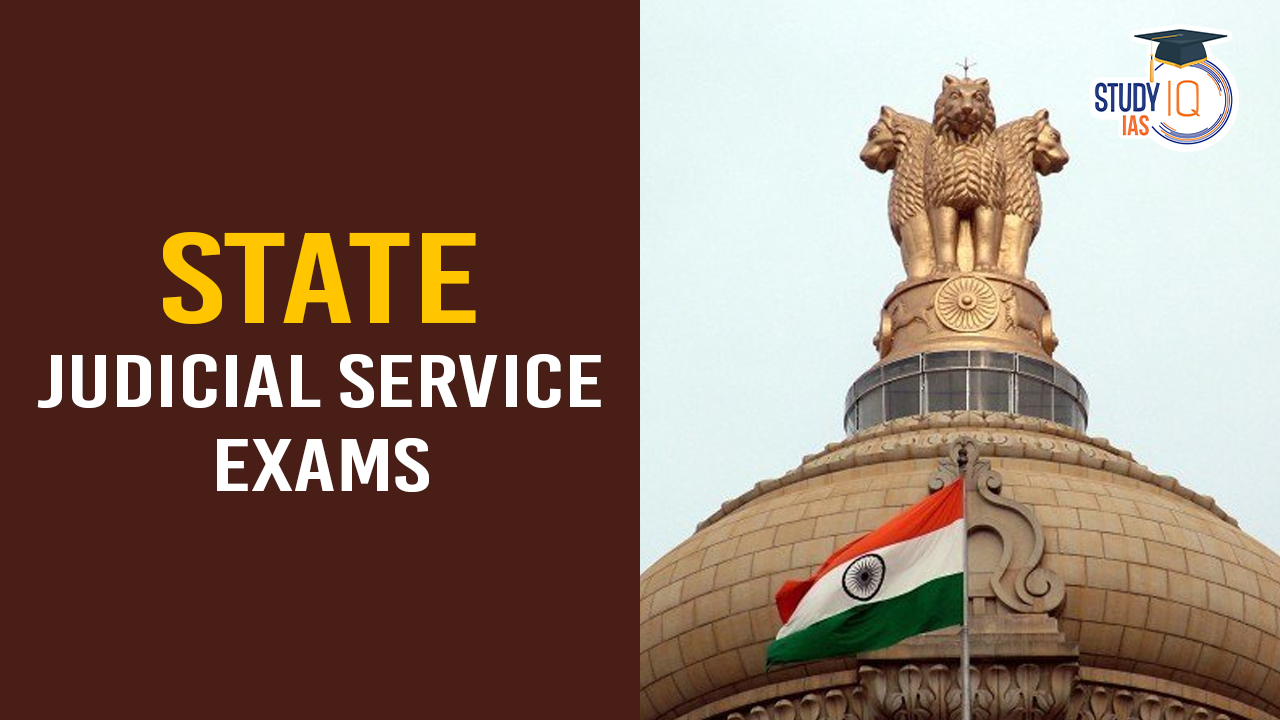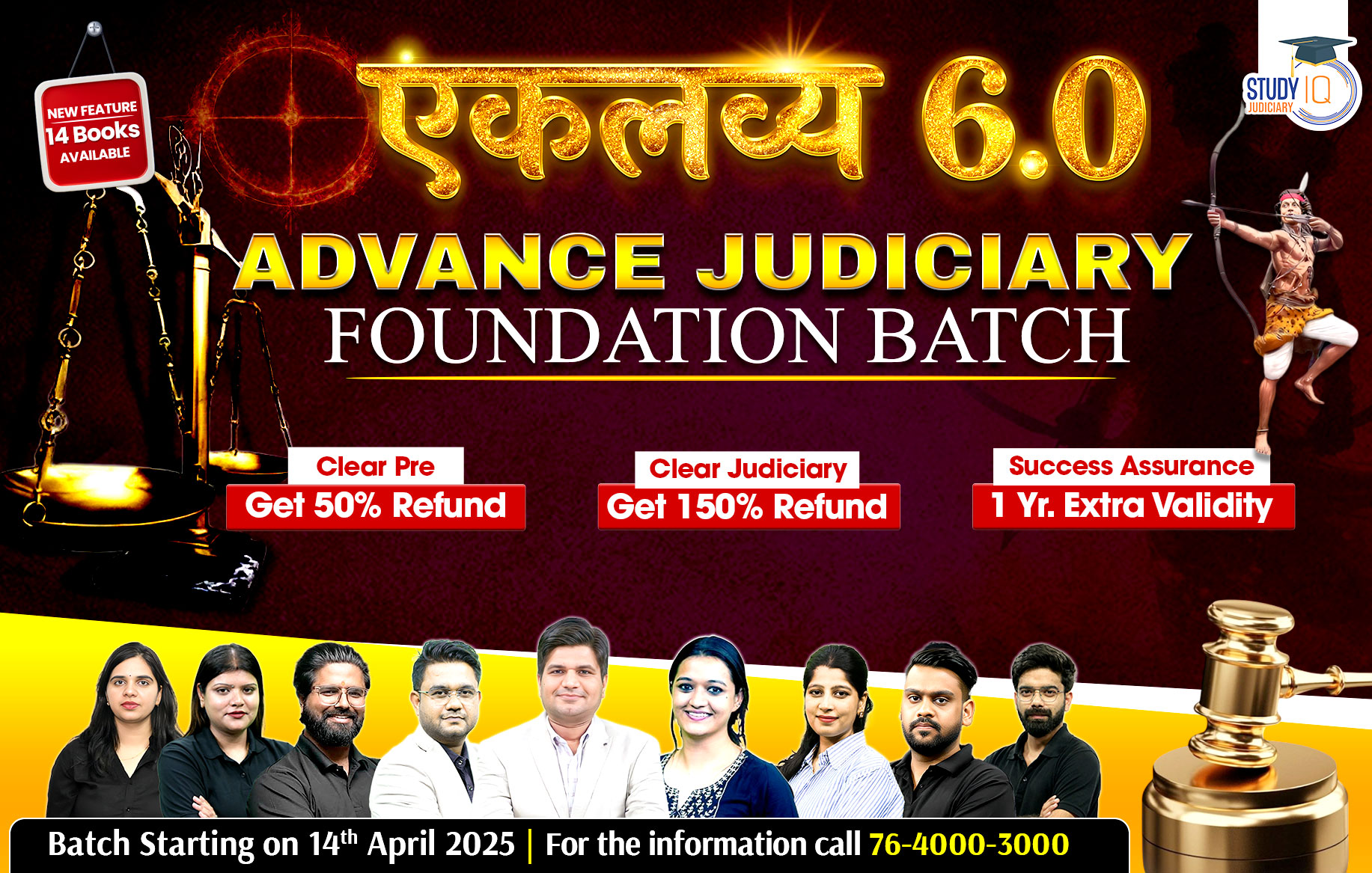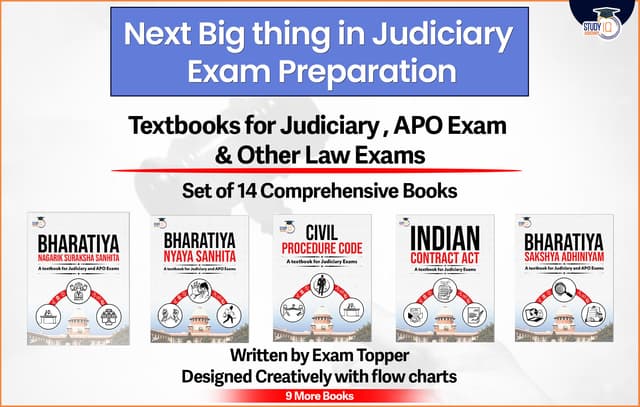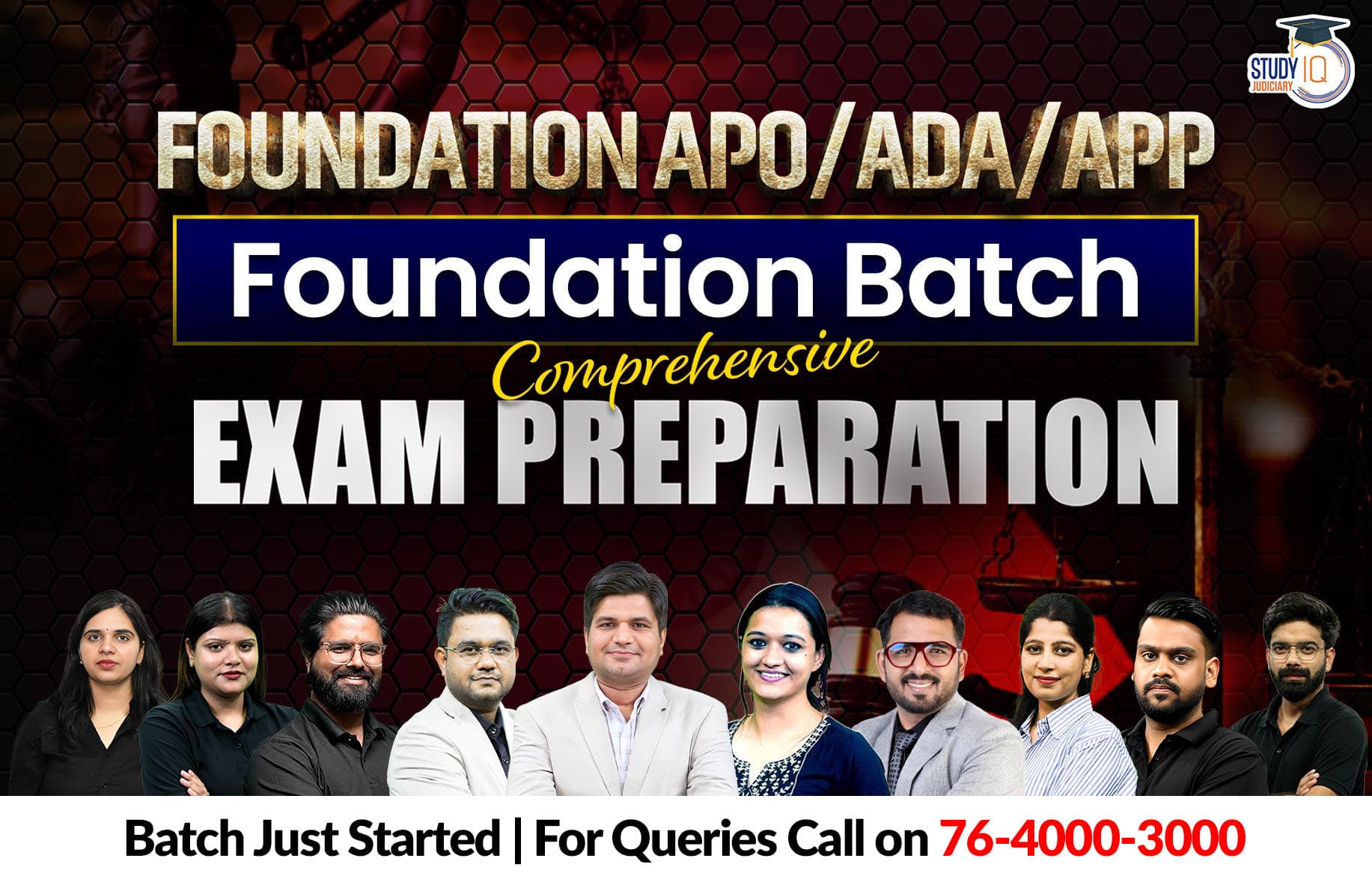Table of Contents
The State Judicial Service Exams are a prestigious pathway for aspiring legal professionals looking to serve as judges in various state courts across India. These exams offer a direct route to becoming a Judicial Officer, with the opportunity to serve in lower or higher courts depending on the state. If you’re passionate about law, justice, and serving the public through the judiciary, this guide will provide essential details on the judiciary mains exam, including the exam pattern, syllabus, eligibility criteria, application process, and more.
About Judicial Service Exams
The Judicial Service Exams are conducted by state public service commissions (SPSCs) or high courts in various states across India to recruit candidates for judicial positions like Civil Judge (Junior Division) and Civil Judge (Senior Division). The exams evaluate candidates’ legal knowledge, reasoning ability, and aptitude for the judicial profession. The state judicial exam syllabus, pattern, and eligibility criteria can vary by state, but they generally follow a similar structure. These exams are highly competitive, requiring rigorous preparation across various law subjects, along with a solid understanding of the Indian Constitution and legal procedures.
Examination Pattern for Judiciary Exams
The Judicial Service Exams typically consist of three stages:
Preliminary Examination (Objective Type)
The Judiciary prelims exam assesses general knowledge, legal aptitude, and basic law subjects. Questions are usually objective in nature and cover topics such as:
- General Knowledge
- Current Affairs
- Indian Penal Code (IPC)
- Indian Evidence Act
- Civil Procedure Code (CPC) and Criminal Procedure Code (CrPC)
- Constitutional Law
Main Examination (Descriptive Type)
The Judiciary Mains Exam evaluates candidates’ in-depth knowledge of law. It includes multiple papers, such as:
- General Knowledge
- Law Subjects (Constitutional Law, IPC, CPC, CrPC, etc.)
- Essay Writing
- Optional Paper (depending on the state-specific syllabus)
This stage also tests candidates’ ability to write clear, structured, and legally correct responses.
Interview
The interview assesses candidates’ personality, legal knowledge, reasoning ability, and understanding of judicial functions, to determine their suitability for the position of a judge.
Syllabus for Judicial Service Exams
The syllabus for Judicial Service Exams generally covers the following subjects:
Preliminary Examination
- General Knowledge: National and international events, Indian history, geography, politics, economy, and environment.
- Legal Awareness: Basics of law, Constitutional Law, Indian Penal Code (IPC), Civil Procedure Code (CPC), Criminal Procedure Code (CrPC), Indian Evidence Act, etc.
- Current Affairs: Key legal developments and landmark judgments.
Main Examination (Descriptive)
- Constitutional Law: Indian Constitution, Fundamental Rights, Directive Principles of State Policy, Judiciary, and Legal Reforms.
- Criminal Law: IPC, CrPC, Indian Evidence Act, Law of Torts, and Legal Maxims.
- Civil Law: Civil Procedure Code, Law of Contracts, Specific Relief Act, Limitation Act, etc.
- Family Law: Hindu Marriage Act, Muslim Personal Law, Indian Divorce Act, Adoption, and Guardianship.
- Environmental Law: Environmental Protection Act, Public Interest Litigation (PIL), and other environmental statutes.
Optional Papers (Where applicable):
Some states may include optional papers or focus on areas like Jurisprudence, Property Law, or Administrative Law.
Eligibility Criteria for Judicial Service Exams
To be eligible for the State Judicial Service Exams, candidates must meet the following criteria, which can vary depending on the state:
| Criteria | Details |
| Nationality | Must be an Indian citizen. |
| Age Limit | Generally between 21 to 35 years (Relaxations apply for SC/ST/OBC candidates). |
| Educational Qualification | A graduate degree in law (LL.B) from a recognized university. |
| Experience | Some states may require 2-3 years of practice as an advocate (in the case of senior division positions). |
| Physical Fitness | Some states may require specific physical standards for certain posts. |
| Number of Attempts | Varies by category (General: 3-6 attempts, OBC: 9 attempts, SC/ST: no limit). |
How to Apply for Judicial Service Exams
The application process for State Judicial Service Exams is primarily online and involves these steps:
- Visit the Official Website: Visit the respective State Judicial Exam or High Court website for the latest notification and application portal.
- Register Online: Create a user account if you’re applying for the first time.
- Fill the Application Form: Provide personal and educational details.
- Upload Documents: Upload scanned copies of your photograph, signature, and required documents.
- Pay the Application Fee: Payment can be made online via debit/credit card, net banking, or a bank challan.
- Submit the Application: Review and submit your form, then print the confirmation receipt for future reference.
State-Specific Judicial Service Exams & Key Details
StudyIQ offers comprehensive information and preparation support for Judiciary Mains Exams across various states:
| State | Exam Type | Exam Syllabus |
| Uttar Pradesh (UP) | UP Judicial Service Exam | UP Judicial Service Exam Syllabus |
| Uttarakhand | Uttarakhand Judicial Service Exam | Uttarakhand Judicial Service Exam Syllabus |
| Maharashtra | Maharashtra Judicial Service Exam | Maharashtra Judicial Service Exam Syllabus |
| Bihar | Bihar Judicial Service | Bihar Judicial Service Syllabus |
| Himachal Pradesh | Himachal Judicial Service Exam | Himachal Judicial Service Exam Syllabus |
| Gujarat | Gujarat Judicial Service Exam | Gujarat Judicial Service Exam Syllabus |
| Delhi | Delhi Judicial Service Exam | Delhi Judicial Service Exam Syllabus |
| Punjab | Punjab Judicial Service | Punjab Judicial Service Syllabus |
| Chhattisgarh | CG Judicial Service Exam | CG Judicial Service Exam Syllabus |
| Haryana | Haryana Judicial Service Exam | Haryana Judicial Service Exam Syllabus |
| Madhya Pradesh | MP Judicial Service Exam | MP Judicial Service Exam Syllabus |
| Jharkhand | Jharkhand Judicial Service Exam | Jharkhand Judicial Service Exam Syllabus |
| Rajasthan | Rajasthan Judicial Service Exam | Rajasthan Judicial Service Exam Syllabus |
| West Bengal | WB Judicial Service Exam | WB Judicial Service Exam Syllabus |
| Odisha | Odisha Judicial Service Exam | Odisha Judicial Service Exam Syllabus |
The State Judicial Service Exams offer a prestigious career in the Indian legal system, with the opportunity to serve as a judge and play a key role in delivering justice. To succeed in the judiciary mains exam, it’s essential to understand the exam pattern, syllabus, and eligibility criteria. With proper preparation, the right study resources, and expert guidance from platforms like StudyIQ, you can increase your chances of success in these competitive exams.
Start your journey to becoming a Judicial Officer today, and with structured preparation, success is within your reach.


 Jammu & Kashmir Judiciary Syllabus 2...
Jammu & Kashmir Judiciary Syllabus 2...
 West Bengal Judiciary Syllabus 2025: Pre...
West Bengal Judiciary Syllabus 2025: Pre...
 Chhattisgarh Judiciary Syllabus 2025: Pr...
Chhattisgarh Judiciary Syllabus 2025: Pr...











